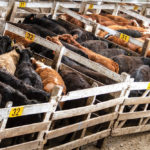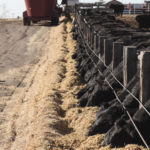
Tag Archives Canadian Cattlemen’s Association

Just a bad patch? Or is the cattle sector in denial?
Charlie Gracey says an ambitious plan to revitalize the beef sector isn’t working, but Dave Solverson says give it time

Canada says TPP trade deal dead without U.S.

Livestock industry must prepare for just about anything
Threats can appear from any direction and most aren’t even on the radar

Farm environmental plans to be made national
Ottawa stakeholder summit suggests making the plans consistent across Canada

Trump’s triumph turns to ag trade trepidation
The U.S. president-elect has threatened to tear up the $1-trillion-a-year North American Free Trade Agreement and says he won’t ratify the Trans-Pacific Partnership

Agri-food sector needs foreign workers
Groups say a parliamentary report offers recommendations that are a step in the right direction

GM cattle could have many benefits
Genetic modification for cattle is under investigation at the federal level

NFU opposes ground beef irradiation
Irradiation will allow large companies to benefit from regulation and puts up another barrier to smaller packers, the NFU says

Regulatory changes would limit farmers’ vet drug imports
Proposed Health Canada changes will affect how antimicrobials are imported into Canada

‘Sustainable’ beef pilot a success — but the job isn’t done yet
McDonald’s pilot is complete but now the Canadian beef industry has to create and implement its own standards




